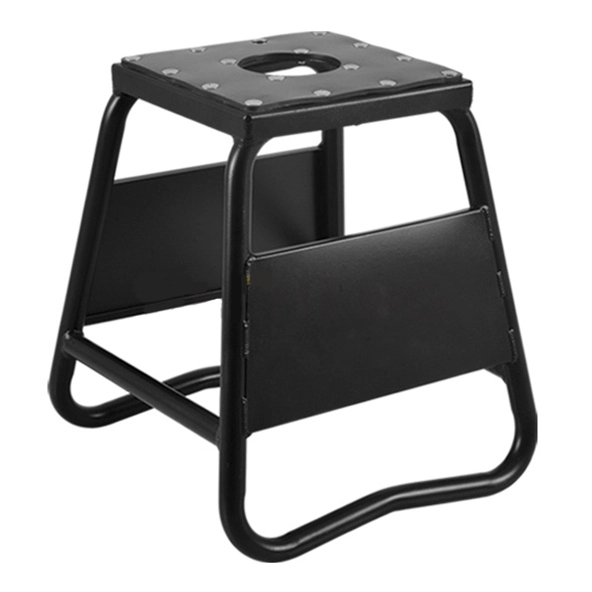The Evolution of Motorcycle Stands: From Basic Support to Advanced Servicing Tools
Historical Development of Motorcycle Stands
The journey of motorcycle stands began with rudimentary supports, often nothing more than wooden blocks or makeshift metal contraptions. As motorcycles evolved, so did the need for more reliable and purpose-built stands. Early designs focused primarily on keeping bikes upright when parked, with little consideration for maintenance needs.
Over time, manufacturers recognized the importance of stable platforms for servicing. This realization led to the development of more robust stands, incorporating features like adjustable height and swivel casters. These improvements allowed for better access to various parts of the motorcycle, making maintenance tasks significantly easier.
Technological Advancements in Stand Design
Recent years have seen a surge in technological advancements in motorcycle stand design. Materials science has played a crucial role, with aluminium becoming a popular choice for its lightweight yet durable properties. Aluminium motorcycle stands offer the perfect balance of strength and portability, making them ideal for both professional workshops and home garages.
Innovative features like hydraulic lifts and electric-powered stands have further revolutionized the industry. These high-tech options provide effortless lifting capabilities, reducing physical strain on mechanics and enabling more precise positioning of motorcycles during servicing.
The Impact of Professional-Grade Stands on Servicing Efficiency
Professional-grade motorcycle stands have significantly improved servicing efficiency. Their stability and versatility allow mechanics to work on multiple areas of a motorcycle without constantly repositioning the bike. This streamlined approach saves time and reduces the risk of accidents or damage during maintenance procedures.
Moreover, the use of quality stands enables more thorough inspections and maintenance. By elevating the motorcycle and providing clear access to undercarriage components, mechanics can identify potential issues early, preventing costly repairs down the line.
Understanding the Types and Applications of Professional Motorcycle Stands
Front and Rear Stands: Specialized Support for Targeted Maintenance
Front and rear motorcycle stands serve distinct purposes in the maintenance process. Front stands typically support the motorcycle's steering head or fork tubes, allowing for easy access to the front wheel, brakes, and suspension components. Rear stands, on the other hand, lift the back of the motorcycle, facilitating chain maintenance, tire changes, and swingarm work.
These specialized stands often feature padded contact points to prevent damage to the motorcycle's finish. Some models incorporate adjustable width settings to accommodate various motorcycle sizes and styles, from sportbikes to cruisers.
Paddock Stands: Versatile Solutions for Race Day and Garage Use
Paddock stands, originally designed for use in racing pit areas, have become popular among enthusiasts for their versatility. These stands typically feature a wide base for stability and are often equipped with wheels for easy maneuverability. Paddock stands can support both the front and rear of a motorcycle, making them ideal for comprehensive maintenance tasks.
Many paddock stands are constructed from lightweight materials like aluminium, allowing for easy transport to track days or offsite servicing locations. Their adaptability makes them a favorite among riders who frequently work on their bikes or participate in motorsports events.
Scissor Stands and Hydraulic Lifts: Advanced Options for Professional Workshops
For professional motorcycle workshops, scissor stands and hydraulic lifts represent the pinnacle of servicing equipment. Scissor stands use a mechanical lifting mechanism to raise motorcycles to comfortable working heights. They often feature large platforms that support the entire motorcycle, providing unparalleled stability during complex maintenance procedures.
Hydraulic lifts take this concept further, offering effortless raising and lowering of motorcycles with the push of a button. These advanced stands can handle heavier motorcycles and often include additional features like built-in wheel chocks and tie-down points for maximum security during servicing.
Maximizing Safety and Efficiency: Best Practices for Using Motorcycle Stands
Proper Stand Selection and Placement Techniques
Selecting the right motorcycle stand, including an aluminium motorcycle stand, for each task is crucial for both safety and efficiency. Consider the specific maintenance requirements and the motorcycle's design when choosing a stand. For instance, sportbikes may require different support points compared to cruisers or touring motorcycles.
Proper placement of stands is equally important. Ensure the stand is positioned on a level, stable surface. Identify the correct lifting points on your motorcycle, typically specified in the owner's manual. For rear stands, this often involves aligning the stand with the swingarm spools or paddock stand bobbins.
Safety Protocols and Precautionary Measures
Implementing robust safety protocols when using motorcycle stands is non-negotiable. Always double-check the stability of the stand before beginning any work. Use additional safety measures like wheel chocks or straps to prevent unexpected movement.
When working with hydraulic or scissor lifts, familiarize yourself with the emergency lowering procedures. Regular maintenance of the stands themselves, including checking for wear and tear on contact points and ensuring smooth operation of moving parts, is essential for long-term safety.
Enhancing Workflow Efficiency with Strategic Stand Usage
Strategic use of motorcycle stands can significantly enhance workflow efficiency in both professional and home garage settings. Consider creating dedicated maintenance stations with stands positioned for easy access to commonly serviced areas.
For complex jobs requiring access to multiple areas of the motorcycle, using a combination of stands can be beneficial. For example, employing a rear stand in conjunction with a front wheel chock can provide stable, elevated access to the entire drivetrain.
Investing in quality stands, particularly those made from durable materials like aluminium, ensures longevity and reliable performance. This investment pays dividends in time saved and improved maintenance outcomes over the long term.
Conclusion
Professional-grade motorcycle stands have revolutionized the way we approach motorcycle maintenance and servicing. From basic support to advanced hydraulic lifts, these tools have evolved to meet the diverse needs of riders and mechanics alike. By providing stable, elevated access to all areas of a motorcycle, quality stands enhance safety, improve efficiency, and enable more thorough maintenance procedures. Whether you're a professional mechanic or a passionate home enthusiast, investing in the right motorcycle stands can transform your servicing capabilities, ultimately leading to better-maintained motorcycles and more enjoyable riding experiences.
Contact Us
Ready to elevate your motorcycle maintenance game? Explore our range of professional-grade motorcycle stands, including durable aluminium options, designed to meet all your servicing needs. For more information or to place an order, contact us at info@runva.com.cn. Take the first step towards a more efficient and safer motorcycle servicing experience today!

_1737625693698.webp)


